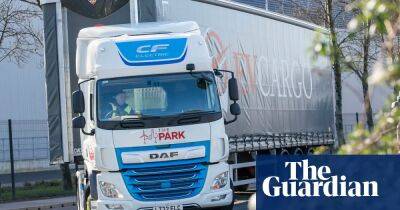Shock and ore: UK firms race to get in on electric car battery recycling act
When batteries die what’s left over is a mess. Devilish “black mass” is a shredded, toxic mix from the insides of battery cells that have reached the end of their useful lives.
“That’s about as close as we go,” warns Benjamin Wickham, director of process chemistry at startup Altilium Metals. I had come within prodding distance of a tonne of the stuff at the battery recycling company’s test lab in Tavistock, on the edge of the Dartmoor national park.
That dark powder, and the valuable metals within it, will play an increasingly important role in decarbonising Britain’s economy over the coming years as electric vehicles become the norm. With 11m tonnes of spent lithium-ion batteries expected to be in need of recycling worldwide between now and 2030, it could prove a big growth business.
Electric cars – for the moment at least – cost more upfront than petrol or diesel vehicles. The main reason is that batteries need expensive metals such as lithium, cobalt, nickel and manganese, rather than the iron, aluminium and oil needed to build and power an internal combustion engine.
Extraction of these minerals and an energy-intensive manufacturing process mean production of a new electric car generates more carbon than for an equivalent petrol or diesel model. However, that ignores the vast global extraction of fossil fuels required to keep internal combustion engines moving – and the unavoidable amounts of carbon they emit.
With electric cars, very little is lost to the environment. What’s more, according to Wickham, recycling spent batteries from 100,000 vehicles could yield as much as £350m worth of new materials.
Given that carmakers need to eventually cut net emissions from car production to zero, the vision of a circular process
Read more on theguardian.com













